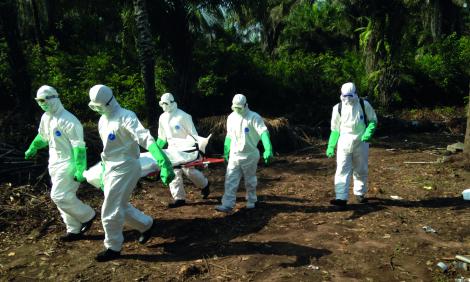Tropical medicine
Tropical medicine doctors treat patients with a range of tropical infections including malaria and hepatitis. They diagnose, investigate and manage imported infection.
Within the UK you’ll treat people who have contracted diseases while travelling overseas.
Life as a doctor in tropical medicine
Early diagnosis is very important, as is disease surveillance.Tropical diseases are found in the tropical area around the equator and thrive in humid and/or hot conditions, especially in poorer areas. They are very wide-ranging and include:
- malaria – caused by disease-carrying mosquitoes
- amoebic dysentery
- dengue fever – caused by a specific mosquito
- Ebola Virus Disease
- HIV and tropical conditions complicating it
- leprosy
- snake bite
- tuberculosis
- typhoid
You will need a detailed understanding of microbiological techniques and how they apply to tropical medicine. You’ll often work directly in a laboratory conducting blood tests and biopsies and you’ll liaise closely with medical microbiologists and virologists.
You may also run travel clinics and provide advice either in person or over the phone to people travelling abroad. You’ll also advise GPs, such as when a patient arrives home from an overseas trip with symptoms such as fever or prolonged diarrhoea acquired while travelling.
You’ll work very closely with public health specialists because preventing the spread of infectious tropical diseases is paramount and may require stringent precautions such as isolation and quarantine.
How much can I earn?
You’ll first earn a salary when you start your foundation training after medical school. Find out details of current salary ranges for foundation and specialty training, SAS doctors and consultants on the Pay for doctors page.How about the benefits?
- make a difference
- flexible and part-time working
- high income early in your career
- work anywhere in the world
- excellent pension scheme
- good holiday entitlement
- NHS discounts in shops and restaurants
Must-have skills
- excellent communication skills to manage a wide range of relationships with colleagues, and patients and their families
- emotional resilience, a calm temperament and the ability to work well under pressure
- teamwork and the capacity to lead multidisciplinary teams
- problem-solving and diagnostic skills
- outstanding organisational ability and effective decision-making skills
- first-class time and resource management for the benefit of patients
Entry requirements
Your first step is medical school. Typically, you’ll need excellent GCSEs and three A or A* passes at A level including chemistry for a five-year undergraduate degree in medicine. Many medical schools also ask for biology and others may require maths or physics.If you already have a degree, you could study for a four-year postgraduate degree in medicine.
You’ll need to pass an interview and admissions test. You’ll be asked to show how you demonstrate the NHS values such as compassion and respect.
Some medical schools look to recruit a mix of students from different backgrounds and geographical areas, so your educational and economic background and family circumstances could be considered as part of your application.
"I love my job as it’s intellectually stimulating and we see rare and interesting cases from countries all over the world. The clinical work is so varied and I am a member of a fabulous team of other health care professionals."
What are my chances of starting a career in tropical medicine?
There are a small number of training places. Tropical medicine trainees dual train with either internal medicine or medical microbiology/medical virology.How to become a doctor in tropical medicine
After medical school, you’ll join the paid two-year foundation programme where you’ll work in six placements in different settings.
After your foundation programme, you can apply for paid specialty training to become a doctor in tropical medicine, which will take a minimum of eight years.
You may be able to train part time, for example for health reasons or if you have family or caring responsibilities.
Where a career as a doctor in tropical medicine can take you
You could:- specialise or conduct research in areas such as paediatric tropical medicine
- teach medical students or postgraduate students in training
- get involved in research at universities, the NHS or private sector
-
These organisations have further information about being a doctor in tropical medicine, particularly as your career progresses. Take a look.
European Society of Clinical Microbiology and Infectious Diseases (ESCMID)
Joint Royal College of Physicians Training Board
London School of Hygiene and Tropical Medicine
Liverpool School of Tropical Medicine
Royal College of Physicians of Edinburgh
Royal College of Physicians and Surgeons of Glasgow





